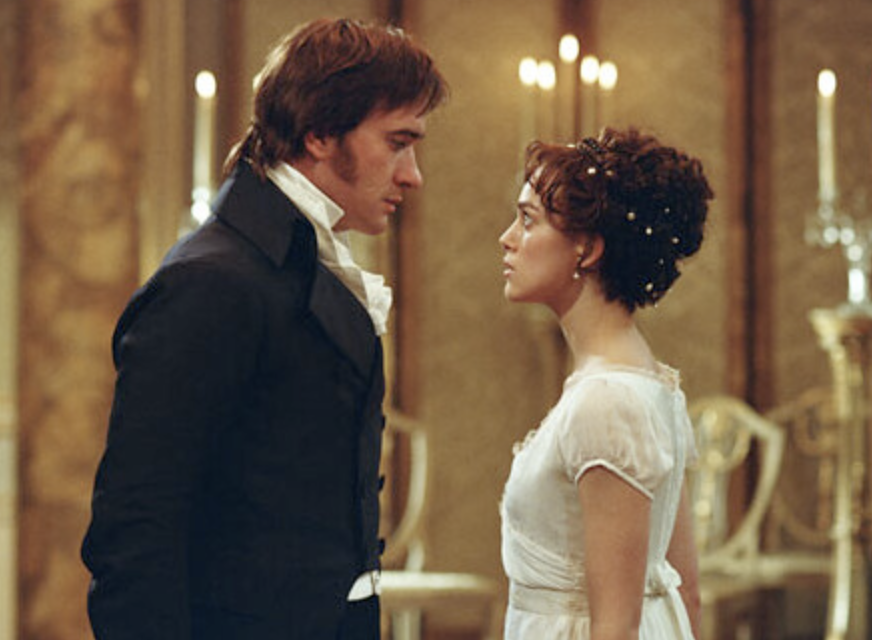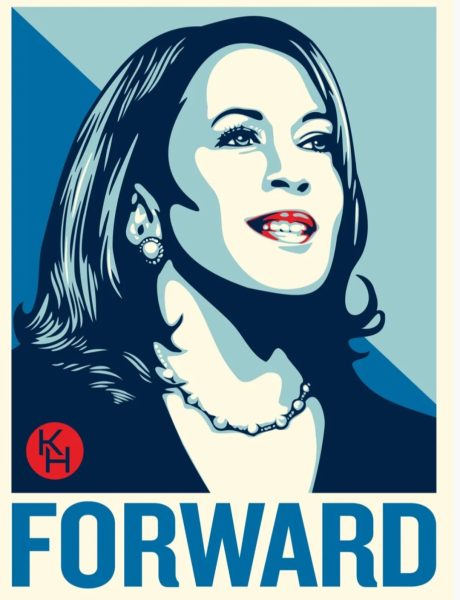Is Elizabeth Bennet Really a Feminist?
It is a truth universally acknowledged that Pride and Prejudice is a testament to how egos and bias stand in the way of truly knowing a person. Jane Austen’s 1813 novel tells the story of hard-headed Elizabeth Bennet and the proud but awkward Fitzwilliam Darcy, by teaching themselves and the reader that hasty judgements and pride are a moral fault. The lesson is definitely learned, but Elizabeth’s prejudice against other women is not entirely resolved. In regency era England if a woman was not set to inherit wealth, her or her family’s means of survival rested in the hope she would marry well enough to live comfortably. Marriages of convenience were not uncommon in this time. Even if a lady had the luxury of finding love, her options were confined to the suitors within her respective social class. In Jane Austen’s Pride and Prejudice, marriage is the main focus for most of the female characters. Each girl has her own journey. For our Protagonist, Elizabeth, the most crucial requirement for marriage is love. However not everyone has that luxury, including herself and the people she holds dear. Elizabeth Bennet’s character through Jane Austen’s writing demonstrates a harsh outlook against the women of their society and illustrates an extreme irony of the intended message that judgements made from preconceived opinions negatively affect one’s view on the world, and the people around them.
It is a natural inclination for daughters to conflict with their mother as they grow. For Elizabeth, her mother is to her as a guilty man is to a floorboard with a methodic beat, obsessed. With marriage that is. Early on in the novel, matriarch of the Bennet Family, Mrs. Bennet insists her husband introduce himself to their new and rich neighbor Mr. Charles Bingley in hopes of connecting him with their eldest Jane. From the beginning Mrs. Bennet is indirectly described by Austen as annoyingly insistent and of simple focus. “Her mind was less difficult to develop. She was a woman of mean understanding, little information and uncertain temper” (Austen 5). While some scholars call her borderline neglectful “Mrs. Bennet’s desire to marry her daughters off is so great that she is willing to sacrifice their happiness—and even their health” (Bodden). From a glance she does appear to be overbearing. Most see her as completely irrational. Although with historical context her actions are easily justified. In the very first sentence of chapter seven it is explained that without the safety of a wealthy husband, after their father passes the girls will be poor. Since the Bennets never had a son, the estate will automatically go to their distant cousin Mr. Collins. Who, if Elizabeth agreed to marry, would marry would have solved all of their problems. With no means of income Mrs. Bennet would have to support herself and five daughters with her dowry (Austen 28). She is criticized not just in the novel but by interpreters for trying to provide her daughters with a stable future in the only way a woman in her position can.”If I can but see one of my daughters happily settled at Netherfield said Mrs. Bennet to her husband, and all the others equally well married, I shall have nothing to wish for.”(Austen 9).
The most obvious case of prejudice has to be the ridicule of Charlotte Lucas. Austen and Elizabeth’s criticisms of Charlotte and her intentions to marry Mr. Collins for financial and social comfort clearly highlights the hypocrisy of Elizabeth’s marital views and Auten’s cautionary message of being blind-sided by one’s own pride and prejudice. In the turn of the 19th Century, if a woman was not married by her late teens, odds were she would die an old maid or become a spinster. Jane Austen herself was a spinster. She remained unmarried until her death in 1817. The difference between Austen and the supporting characters she writes is that she had the luxury of her family’s financial support. Her father was a Clergyman who came from a successful family of merchants; her brother provided her a home after inheriting estates from family members. Yet she uses Charlotte as a foil to Elizabeth’s position as a strong female character by criticizing her settling for comfort. Austen even adds that, “Miss Lucas, who accepted him (Mr. Collins) solely from the pure and disinterested desire of an establishment” (Austen 121), after Charlotte’s acceptance of Mr. Collins’s proposal.
Austen’s Elizabeth is commonly hailed as the bold heroine whose strong views set her apart from her female counterparts.
“Elizabeth Bennet voices the philosophical idea of liberal feminism by arguing that she has the right to choose her own marriage partner: marriage is a personal and lifelong commitment between two individuals. By defying the marital norms of the late 18th and early 19th centuries and rejecting the proposals from Mr. Collins and Mr. Darcy, Elizabeth does not only express liberal feminist ideas but she also acts on them. She chooses to go her own way and make her own decisions, thus establishing a very strong and independent character.” (Blom)
However, she ultimately does marry into a situation of extreme comfort and, upon a closer look, we are left to wonder how much of Austen’s real-life circumstances shape this event and other character vulnerabilities. In chapter five the middle, more forgotten about, Bennet sister Mary talks of vanity. Saying that although used synonymously pride and vanity are different things. You can be proud without being vain and pride is the opinion of ourselves while vanity is what others think of us (Austen 20) It is highly probable that Elizabeth’s life is what Austen had envisioned for herself. In an article published by the University of California Press the writer proposes the argument that: “Elizabeth’s anxiety over what Darcy must think is the reason for her hostility towards him; where she is indifferent, as Darcy is indifferent to public opinion she would not be so upset” (Fox). Jane Austen uses Elizabeth to portray her own anxiety which explains why she is, as the article explains, initially so hostile towards Darcy. In return she is hostile to the woman around her, to put herself on a moral pedestal and avoid feeling inferior. She boosts her vanity by painting herself as a strong independent woman who doesn’t need to offer her happiness in exchange for simplicity but just looks down on others who don’t do the same. Behind her shell is an author who wished to fantasize about what she never had. Note: the original novel was published in 1813 and Austen died in 1817 just a little over four years later.
In the beginning of volume three Elizabeth begins to contradict herself with her arrival at Pemberley Woods, Darcy’s estate:
“Elizabeth, after slightly surveying it, went to a window to enjoy its prospect. The hill, crowned with wood, which they had descended, receiving increased abruptness from the distance, was a beautiful object. Her disposition of the ground was good; and she looked on the whole scene, the river, the trees scattered on its banks and the winding of the valley, as far as she could trace it, with delight. As they passed into other rooms these objects were taking different positions; but from every window there were beauties to be seen.” (Austen 240)
Imagery is usually a storyteller’s greatest help when enthralling a reader, but not for Jane Austen with the exception of her dreamy and detailed description of the Pemberley estate. Why is it that Austen only used imagery while talking about Darcy’s home, and Elizabeth’s future dwelling? This reveals that she sees his property as an important part of his appeal and a lust for what Elizabeth will have. This argument is further reinforced when Elizabeth is given a tour as she visits Pemberley with her Aunt and Uncle. While wandering about the drawing room, she wonders what would have been: “And of this place,” thought she, “I might have been mistress! With these rooms I might now have been familiarly acquainted! Instead of viewing them as a stranger, I might have rejoiced in them as my own” (Austen 240). As she contemplates the comfort and luxury of Darcy’s estate she contradicts her own ideals of marrying for love and not wealth. In doing so she exhibits the same ideals as Charlotte. The ones she claims to be so frivolous. Austen could have taken this chance to further Elizabeth’s character development in favor of understanding why Charlotte was satisfied with just having a home, but she did not.
In conclusion, Elizabeth Bennet’s character through Jane Austen’s writing demonstrates a harsh outlook against the women of their society and illustrates the extreme irony of the intended message that judgements made from preconceived opinions negatively affect one’s view on the world, and the people around them. The hypocrisy of Elizabeth Bennet’s character development not extending to her peers exposes the irony of Jane Austen’s writing. She is identified and praised as an early feminist writer for creating such a strong independent character. Bennet’s journey was supposed to be an empowering telling of a woman valuing her happiness in a time when they were seen as second class citizens. Except the impact was overshadowed by her lack of empathy and for her peers. The only change of heart made, was for a man. Darcy was the only one who saw the benefits of her progression which contradicted the liberal feminist ideals that are so important to Elizabeth’s character. Her self righteousness disguises her inability to acknowledge her privilege; in a lesson as old as time he who is not guilty may throw the first stone.







